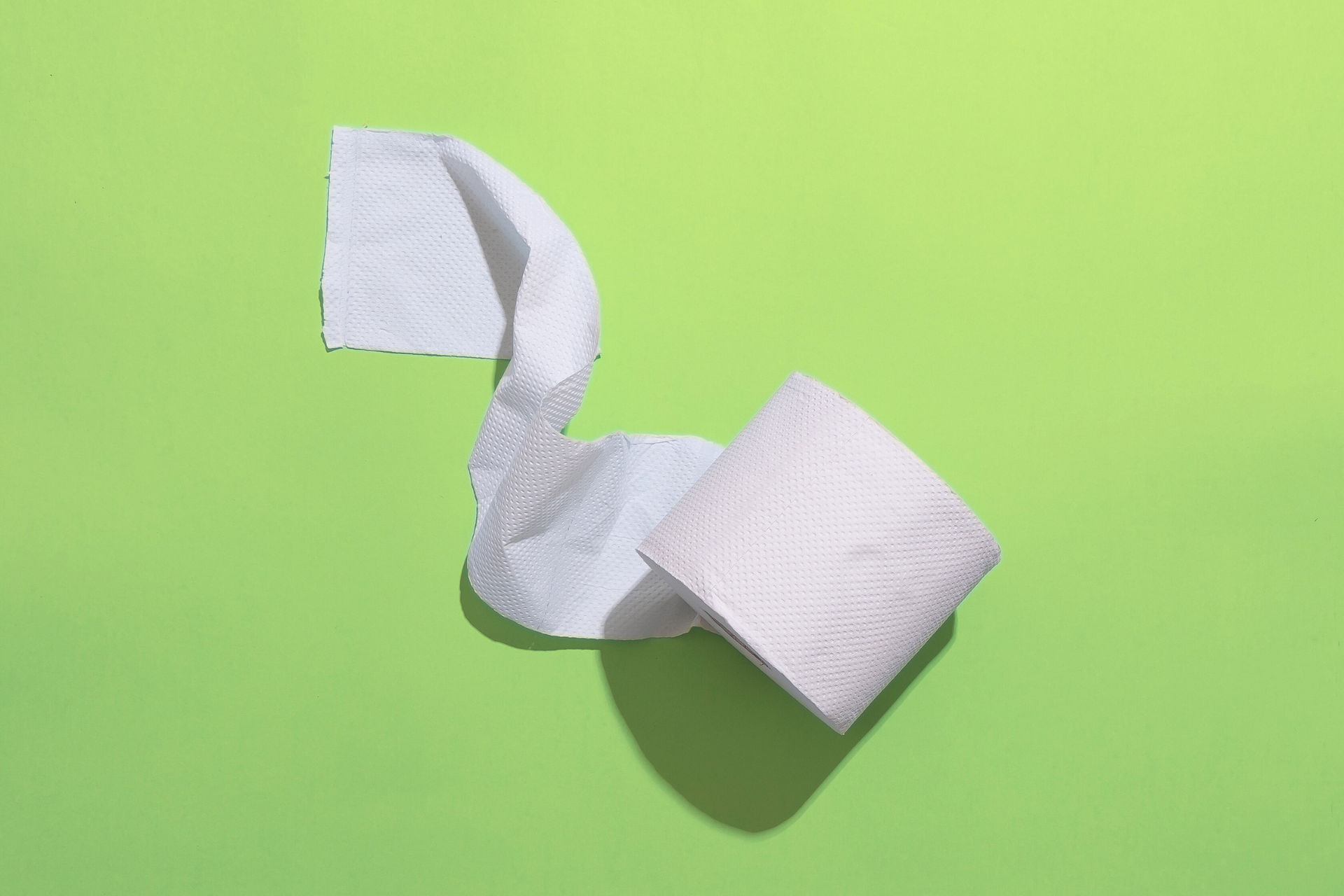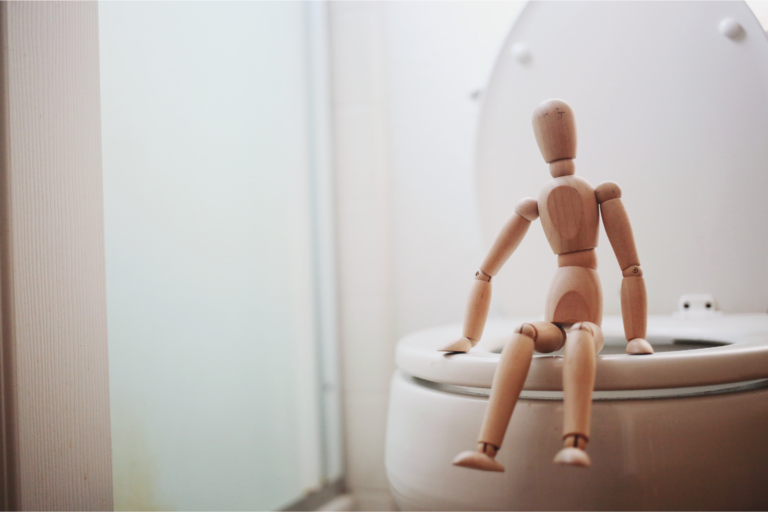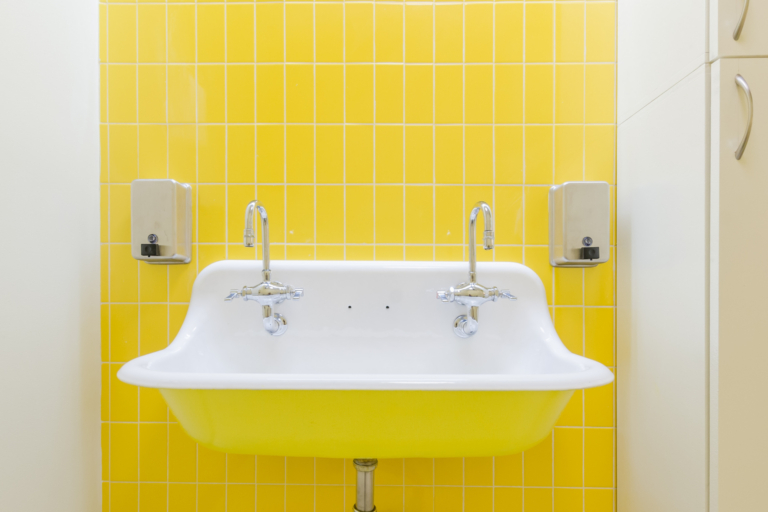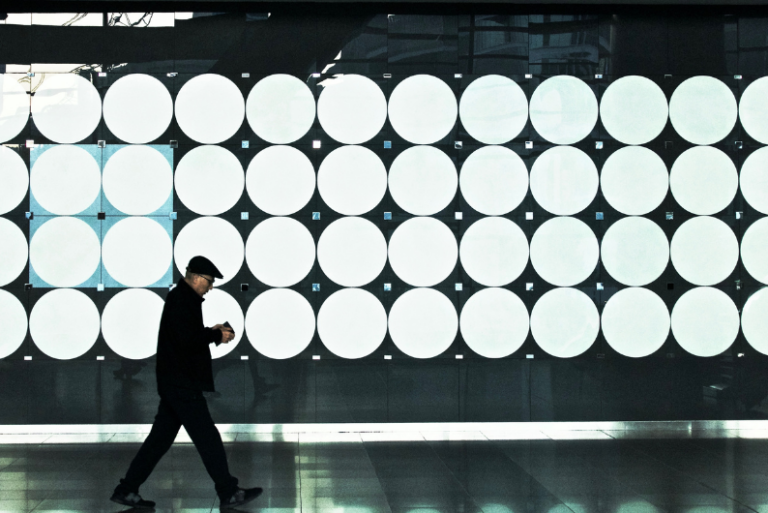Green Poop Isn’t Usually Dangerous. Here’s Why It Happens.
Key Takeaways:
Green poop is not typically a cause for concern and doesn’t indicate serious health conditions.
Eating chlorophyll-rich foods or foods dyed green is the most common cause of green poop. Others include iron supplements, medications, and certain conditions.
If you experience a change in the color of your stool, especially accompanied by other symptoms such as diarrhea or constipation, seek medical attention.
1. Chlorophyll-rich food (veggies + more)
Green vegetables are one of the most likely causes of green stool. The chlorophyll in green veggies naturally leads to a greener hue of poop — but it’s not just your leafy greens. Many herbs, spices, and other green foods may be the culprit.
Foods high in chlorophyll that can alter the color of your stool include:
- Broccoli
- Kale
- Spinach
- Bok choy
- Swiss chard
- Watercress
- Green beans
- Arugula
- Asparagus
- Cucumbers
- Zucchini
- Celery
- Matcha
- Avocados
- Kiwi
- Green grapes
- Green apples
- Green olives
- Pistachios
- Wheatgrass
- Spirulina
- Parsley
- Chlorella (also in some dietary supplements)
- Brussels sprouts
- Arugula
- Seaweed
- Alfalfa
- Collard greens
Blueberries, red wine, grapes, and black licorice can also lead to color changes in your bowel movements. However, these are more likely to lead to purple or black stools rather than green.
Foods rich in beta-carotene or bright yellow food coloring may cause orange or yellow-tinted stool.
2. Food coloring
Similarly, food coloring found in processed foods can cause green poop. The pigment in artificial coloring is hard — sometimes impossible — for your body to digest.
That’s why eating unnaturally green food can create an interesting color of bright green poop.
It’s not only green food coloring that can change the hue of your poop. A combination of blue and yellow dyes can also create green. (Remember elementary school art?)
Black, purple, and blue dyes can also lead to green feces.
These foods contain dyes that may make your poop a different color:
- Bright green cakes and cupcakes
- Green beer
- Canned green peas
- Salad dressing
- Pickles
- Breakfast cereal
- Candies
- Bright-colored sodas (like Mt. Dew Baja Blast)
Fun fact: A black Whopper from Burger King created a Halloween surprise for many customers back in 2015 who noticed their poop turned green after trying it. The food coloring used in the limited edition burgers included blue and yellow (among others).
Read Next: Why Does Taco Bell Make You Poop?
3. Gastrointestinal health conditions
Several gastrointestinal diseases can affect your digestive tract and result in green poop:
- Irritable bowel syndrome (IBS)
- Inflammatory bowel diseases (IBD), including ulcerative colitis (UC) and Crohn’s disease
- Celiac disease
These health conditions often come with symptoms such as abdominal pain, bloating, noticeable mucus, changes in bowel habits, and white specks in poop.
Diarrhea, in particular, can cause stool to move too quickly through the intestines. This means bile (which is greenish) doesn’t always break down completely, leading to altered poop color.
Why is my poop green and my stomach hurts? Frequent green poop accompanied by stomach pain may be a sign of IBS. However, occasional diarrhea may cause both green stool and abdominal discomfort, which is not necessarily a reason to be concerned.
If you also experience burning diarrhea, IBS is a more likely cause of green stools.
4. Infections
Parasitic and bacterial infections can disrupt the balance of bacteria in your GI tract and cause green stool (and, in many cases, diarrhea). These include:
- Salmonella
- E. coli
- Norovirus
- C. difficile (C. diff)
- Giardia
- Food poisoning
- COVID-19 (may cause green or yellow stool)
Related: Why does my poop smell sweet? [Infants & Adults]
5. Dietary supplements
Dietary supplements that can cause green stool include:
- Iron supplements
- Cascara sagrada
- Rhubarb
- Senna
- Fiber supplements
- Supplements with chlorophyll (e.g., spirulina, barley grass, wheatgrass, chlorella, and blue-green algae)
- Yerba mate tea
- Omega-3 fatty acids
Iron supplements are a common cause of green or dark green stool. They may also cause constipation or other digestive issues in some individuals, increasing the potential for altered poop color.
If you take iron supplements that turn your poop green, don’t worry — this is pretty normal and typically not a sign of GI bleeding or any serious issue.
6. Liver and gallbladder issues
The liver and gallbladder are components of the digestive system responsible for producing and storing bile. Green stool caused by a lack of bile may indicate health conditions of the liver or gallbladder. These include:
- Gallstones
- Bile duct issues
- Non-alcoholic fatty liver disease (NAFLD)
- Gallbladder removal
7. Medications
A few medications may cause green poop as a harmless side effect, including:
- Antibiotics
- Pepto-Bismol (which contains bismuth)
- Depo-Provera (medroxyprogesterone), also called the birth control shot
- Other hormone-altering medications
- Laxatives
- Medication that can cause diarrhea as a side effect, like metformin, Lexapro (escitalopram), Nyquil, Zoloft (sertraline), or antibiotics like ciprofloxacin
What is the reason for green stool in women? There are no female hormone-related causes of green poop. However, birth control medications (especially the shot) could cause green stool to occur in women more frequently than men.
8. Paraquat exposure
Paraquat, a toxic chemical used as an herbicide for weed and grass control, can also cause green poop. The US Environmental Protection Agency classifies paraquat as “restricted use,” meaning only licensed applicators can use it. (It’s not something the average person in the United States would come in contact with.)
When ingested, paraquat can lead to various health issues, including digestive problems and changes in bowel movements, such as green poop.
If you think you or someone else were exposed to paraquat, seek immediate medical attention, as this can be life-threatening.
If you’re a licensed paraquat applicator, always follow proper safety guidelines and precautions when using or handling this substance to minimize the risk of ingestion or exposure.
9. Anal fissures
Frequent hard stools can lead to tears in the anal tissue lining, known as anal fissures. Anal fissures may cause green poop and blood in stool.
These are most common in people suffering from IBD or chronic diarrhea.
Is green baby poop normal?
Yes, it’s normal for your baby’s poop to be green. After an infant has passed meconium (their first bowel movement), stool color changes from a dark green to yellowish.
Antibiotic treatment may change the rate at which infant stool color changes.
Is green poop a sign of cancer?
Green poop is not a known sign of any kind of cancer.
Cirrhosis of the liver that leads to frequent diarrhea may be a red flag for liver cancer. But cirrhosis and liver cancer are not known to cause green poop.
If you notice your poop changes to a tarry black consistency or very pale color, talk to your doctor right away, as this is more likely to be an early indicator of cancer.
When to call your doctor
What should you do if your poop is green? In most cases, green poop is not a cause for concern. However, if you experience frequent green poop accompanied by GI symptoms, you should talk to a gastroenterologist or family doctor.
Call your doctor if you experience green poop along with persistent or severe symptoms including:
- Abdominal pain
- Constipation
- Diarrhea
- Fever
- Weight changes
You should also consult a healthcare provider if you notice red stool, black tarry stools, or pale, clay-colored stools. Changes to the consistency or color of your poop may indicate more serious medical conditions affecting your digestive health.






![Why Does My Poop Smell Sweet? [Infants & Adults]](https://poopquestions.com/wp-content/uploads/Sweet-Smelling-Poop-Header-768x513.png)
